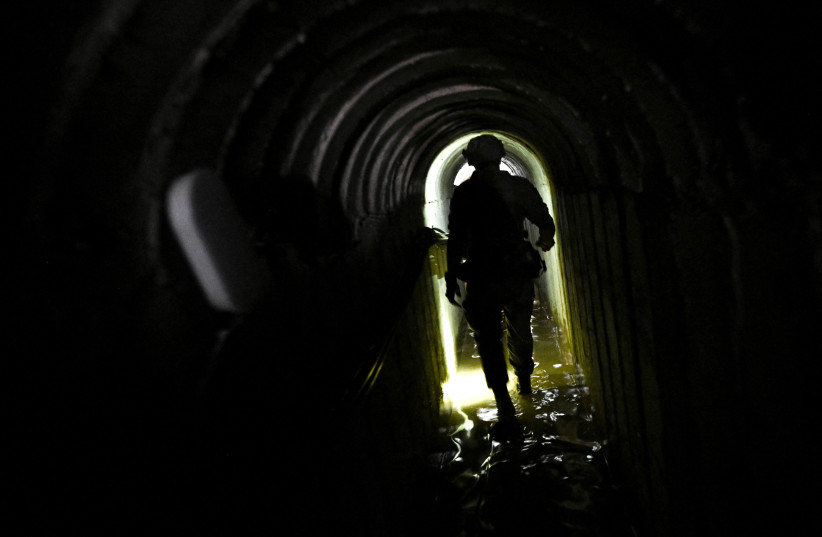In the pursuit of peace and stability between Israel and the Palestinians, the United States has shelled out an impressive $7 billion investment in humanitarian aid in the West Bank and Gaza in the pursuit of peace. Despite this monumental sum, peace remains an elusive goal, and stability a distant dream.
A large swath of these funds have gone toward NGOs and other organizations aimed at assisting Palestinian refugees. However, much of this American “aid” has inadvertently supported ideologies that are fundamentally opposed to American values like democracy and human rights, directly and indirectly fueling violence against Israel and the United States.
This can’t continue.
Humanitarian aid is noble. Funding violence against ourselves and our allies is not.
UNRWA and Hamas
The United Nations Relief and Works Agency for Palestine Refugees in the Near East (UNRWA) is a case in point. The agency was initially established in 1949 to support the welfare of Arab refugees who left or fled their homes during Israel’s War of Independence following the vote in favor of the UN Partition Plan in 1947. However, today UNRWA workers not only have ties to Hamas, but a growing number of them have been shown to have actively participated in the October 7 massacre in Israel.

This revelation underscores the need for better oversight of US taxpayer dollars provided to the UN and other international and NGO sources when supporting refugee organizations in the Middle East. This is especially true for the areas of Gaza and the West Bank – regions controlled and run by corrupt, depraved, authoritarian jihadists.
Any future funding intended to support the Palestinian people requires a significant increase in transparency and accountability to justify the use of US taxpayer dollars. It is also imperative that the vetting of aid workers must align with the standards of US contracting, ensuring that funds are withheld from any entity failing to meet these criteria.
Adopting a zero-tolerance policy is critical to guaranteeing that our aid contributes to solving problems rather than creating them.
While similar controversies have received prior attention, October 7 put the mainstream spotlight on them. The alarming revelation that some of UNRWA’s employees participated in the massacre, not to mention the prior revelation of the storage of missiles and other terrorist weaponry in vacant UNRWA schools, deteriorates the trust of international donors and endangers innocent lives. As a result of this discovery, many nations, including the United States, have withdrawn funding.
Additionally, a report by the Institute for Monitoring Peace and Cultural Tolerance in School Education (IMPACT-se) and UN Watch revealed that UNRWA-produced educational materials and activities glorify warfare and martyrdom, while promoting antisemitic narratives. Such content violates the principles of neutrality and human rights required of UNRWA, and makes the United States complicit in their actions.
THE IMPLICATIONS of supporting organizations with links to terrorism are profound. Not only does it fuel the cycle of violence, ensuring that Israel and the Palestinian people remain locked in conflict, but it also complicates diplomatic relations and undermines the effectiveness of US foreign policy in the region.
The issue of indirectly funding terrorists through humanitarian aid due to poor oversight is not exclusive to the case of Palestinian assistance. Between 2012 and 2018, the United States Agency for International Development (USAID) administered $2.6 billion to international public organizations and an additional $2 billion to NGOs working in Iraq and Syria.
Further investigation found that roughly $700 million was allocated without a proper mechanism to prevent funds from benefiting terrorist group members. This led to the sanctioning of numerous individuals and entities, along with the suspension of approximately $239 million in funding for programs in the area.
In another instance, the Office of Inspector General found that a USAID partner organization allowed food kits to go to unqualified recipients, including members of Hay’at Tahrir al-Sham, a US-designated terrorist organization affiliated with al Qaeda.
Any financial support for Palestinians must be conditional upon the assurance that the aid provided does not indulge these barbaric jihadist ideologies or support terrorist activities as we saw on October 7. These assurances cannot come from the same corrupt international organizations but require direct oversight by the US governmental agencies providing the funding.
By allowing funds to support organizations with ties to terrorism, we indirectly fuel the very ideologies we seek to combat. Establishing rigorous oversight mechanisms and demanding accountability for the use of funds are vital steps toward ensuring that aid serves its intended purpose of promoting peace, development, and human rights.
No funding should move forward until such oversight and accountability are in place. The West’s fiscal support should not become a tool for terror, but a beacon of hope for a region, and people, that badly need it.
The writer is a foreign policy and national security expert as well as director of policy and strategic operations for the US-Israel Education Association (USIEA), a Birmingham, Alabama-based nonprofit which aims to educate members of Congress on the US-Israel relationship.
